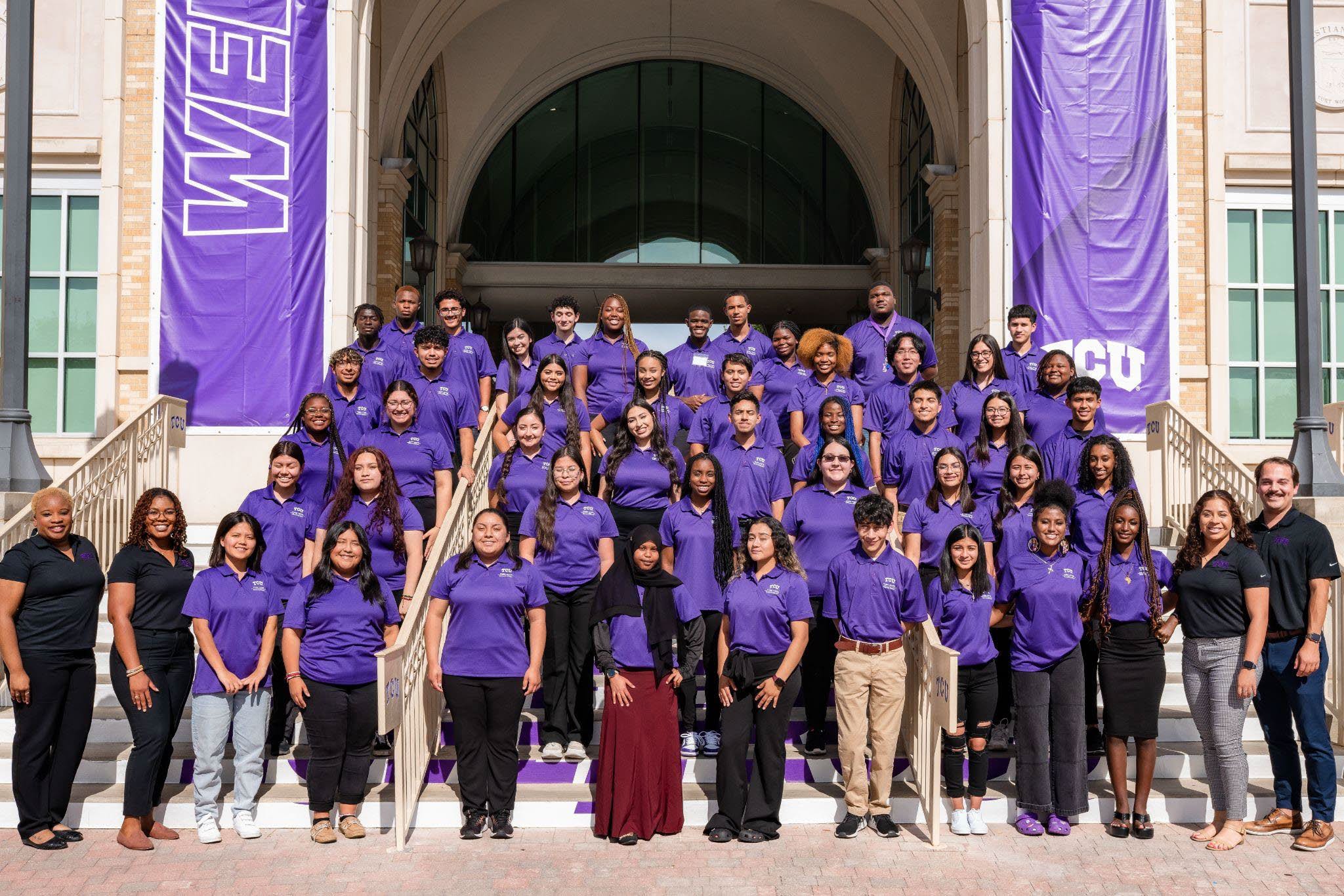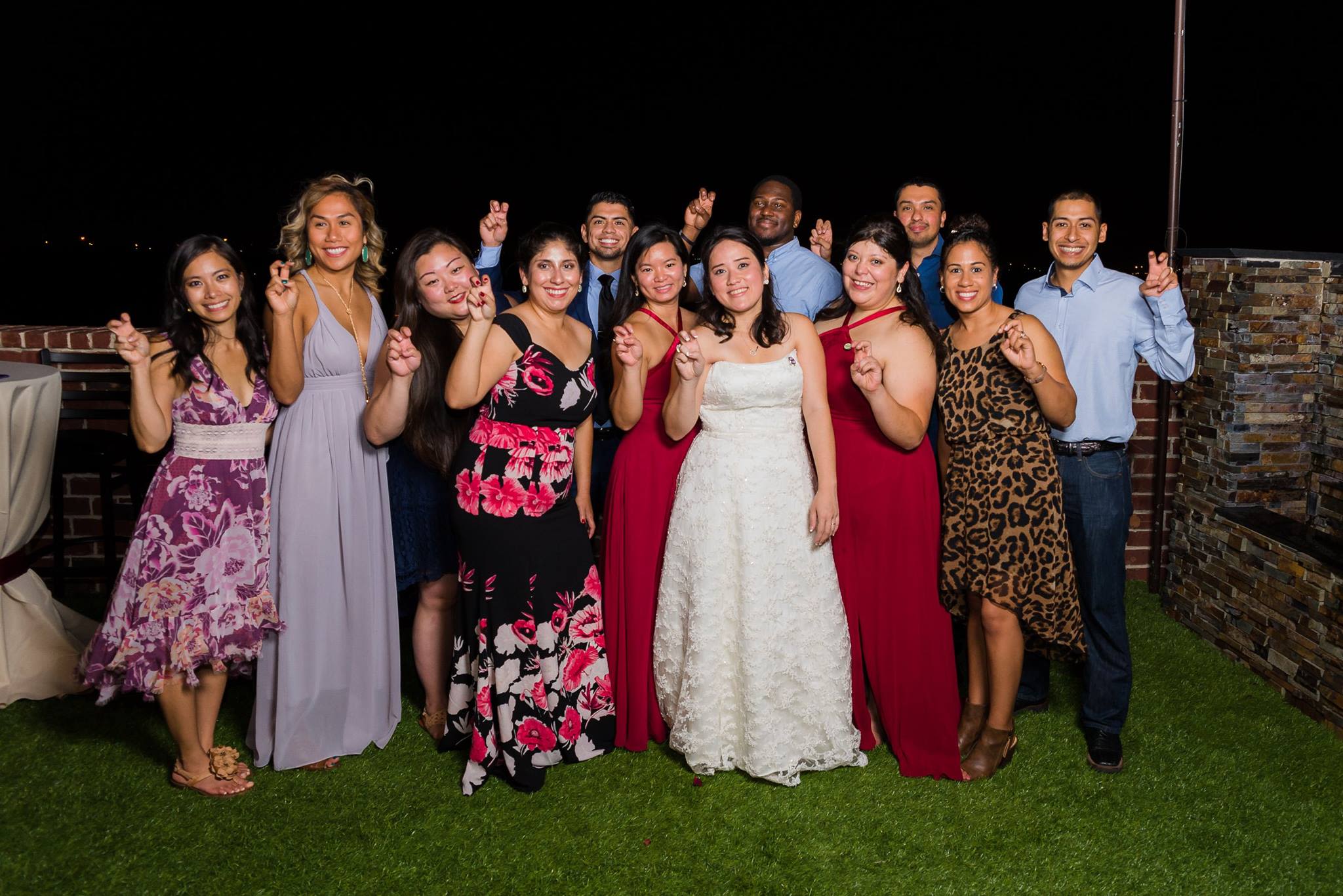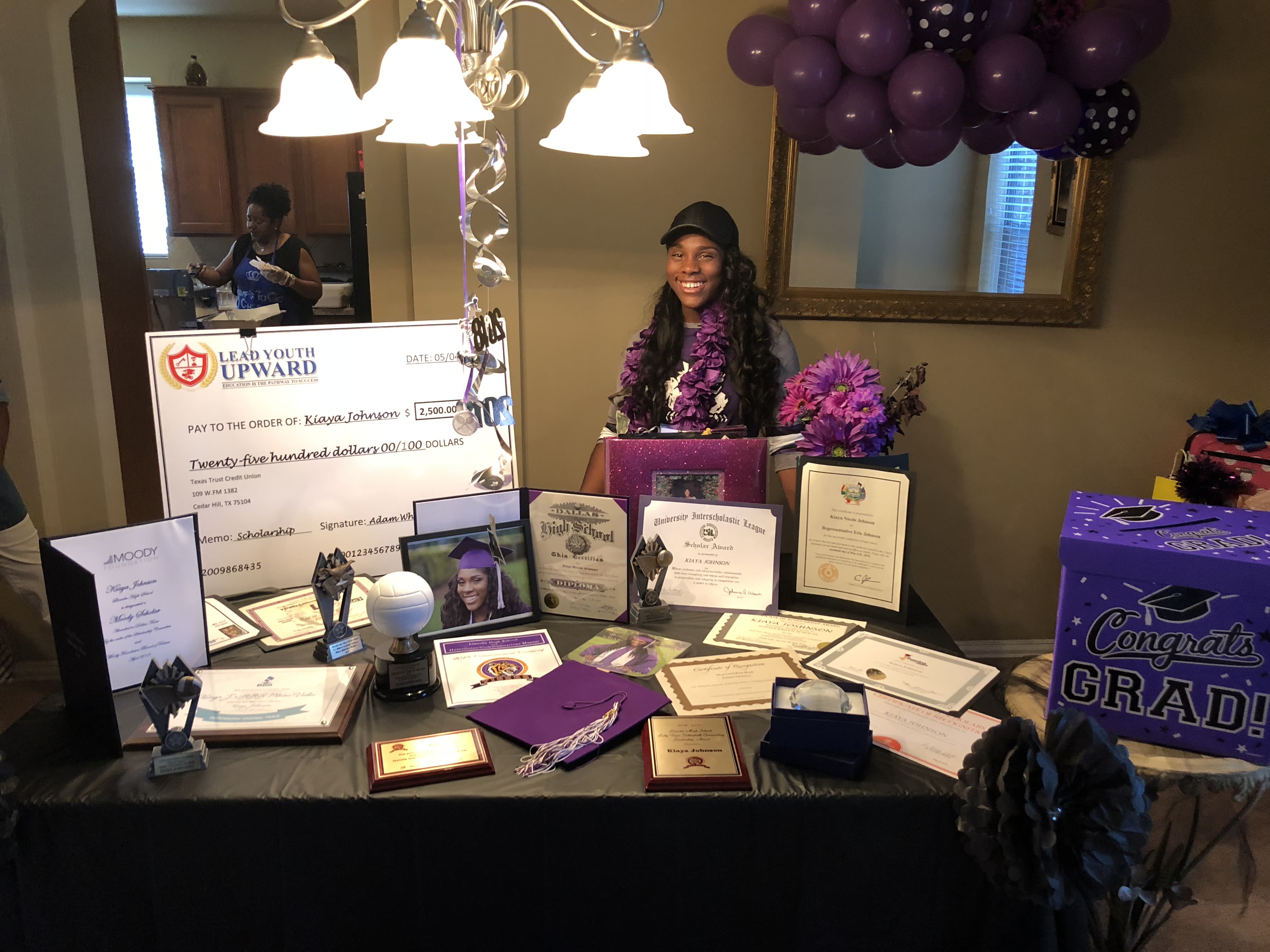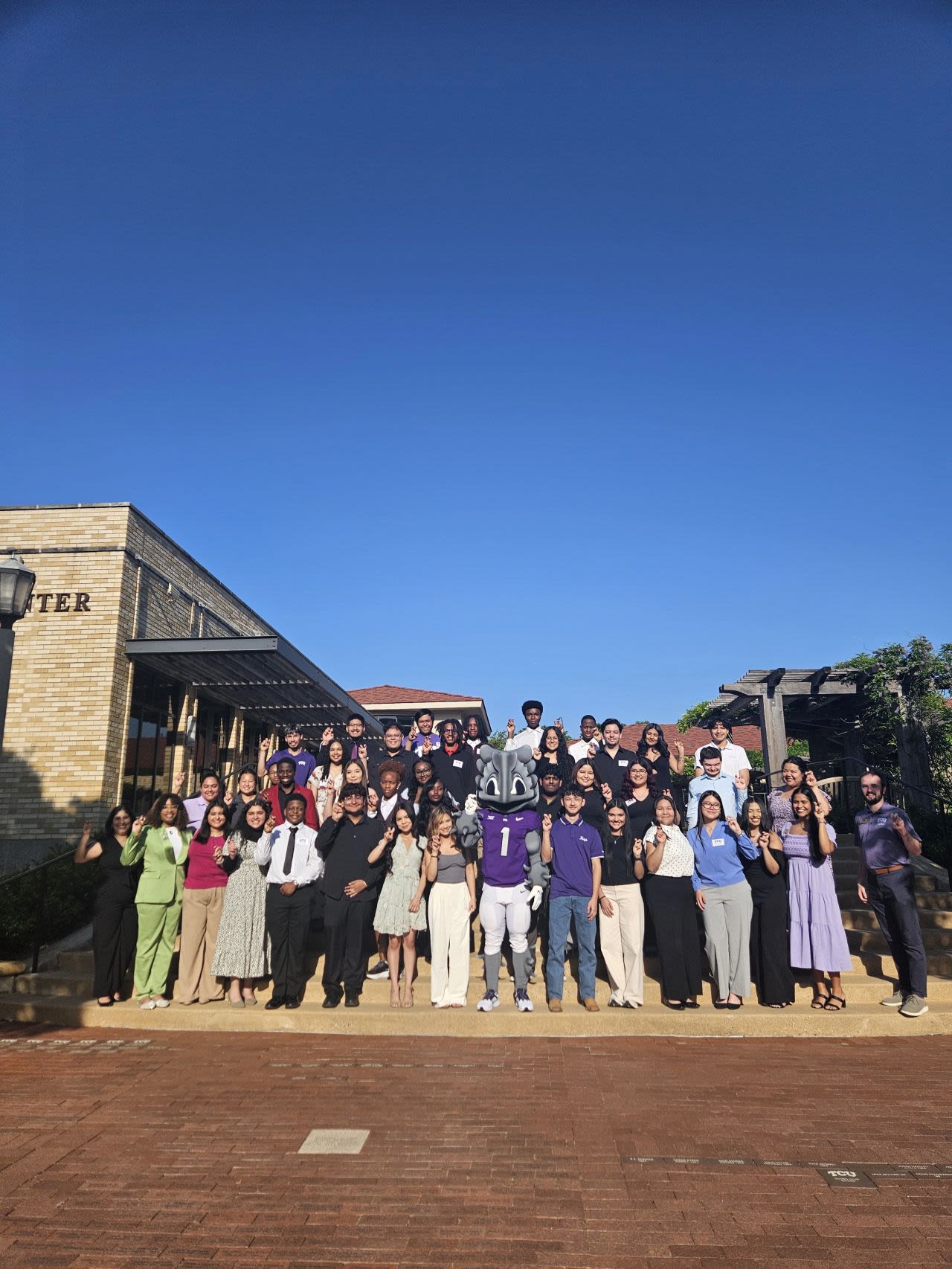A path to leadership
The lasting impact of the Community Scholars Program

For many students, the transition from high school to university life is filled with unknowns. From adjusting to this newfound independence to navigating an unfamiliar academic and social environment, the experience is quite overwhelming.
At Texas Christian University, the Community Scholars program was created with these challenges in mind, designed to support students from underrepresented communities in succeeding academically, without the added weight of financial burdens.
Established in 2000 with directors Darron Turner and Cornell Thomas, the program was founded “based on the conviction that everyone deserves access to a quality education.”
It began with a cohort of 12 students, 11 of whom graduated after completing the four-year program. Today, it has guided more than 500 students, recruiting from Dallas Lincoln, North Side and 11 other high schools across the Tarrant and Dallas counties.
Dr. Timeka Gordon welcomes incoming students to Texas Christian University
Dr. Timeka Gordon welcomes incoming students to Texas Christian University
Timeka Gordon, director of the Community Scholars program since 2008, said her motivation to lead the program came from her undergraduate experience at The University of Texas at Arlington.
“Reading the job description, I thought, wow. This is what I was missing,” Gordon said. “I didn’t have a person committed to my success, so I wanted to be the person I wish I had when I was in college.”
With its emphasis on mentorship, leadership development and community, the program ensures students are prepared for life both in and outside of college.
Roxana Aguirre

Roxana Aguirre as Senior Admissions Counselor at TCU
Roxana Aguirre as Senior Admissions Counselor at TCU
Dr. Gordon and Aguirre outside the Dee J. Kelly Alumni & Visitors Center
Dr. Gordon and Aguirre outside the Dee J. Kelly Alumni & Visitors Center
Aguirre presents program requirements to incoming Community Scholars
Aguirre presents program requirements to incoming Community Scholars
A scholar becomes a leader
Roxana Aguirre, associate director and alumna of the Community Scholars program, entered TCU in 2008 as a first-generation Mexican American student.
“College was always in my mind as something I wanted to do but didn’t really know the trajectory to get there,” she said. “My dad worked as a maintenance man at TCU and that’s how I first got exposed to it.”
Through her father’s connections, Aguirre joined an ACT summer-prep program in her first year of high school and continued for two years. There, she met an admissions advisor who told her about the Community Scholars Program.
“She said it was a full tuition scholarship because it was not full ride at the time,” Aguirre said. “So, I applied and was one of the 11 students who got the scholarship from Northside High School.”
Once on campus, the program’s support network both challenged and supported her. At the time, requirements were far more extensive, including mandated study hours, workshop programming, collaborative events and community service.
"You meet someone who changes your life for the better."
"For me, that was Dr. Gordon” she said, “I was within her first class of students, and she was my support system through everything.”
After graduating in 2012 with a degree in Psychology, Aguirre returned to TCU, working alongside Gordon as associate director of the program.
“I have a running joke with my students who come in and complain” she said. “You do a lot less requirements for a lot more money.”
Aguirre approaches mentorship through “tough love”, setting clear expectations while offering the same support she once received.
“We are mentors, and we are a family, we make sure you have everything you need be successful,” she said.
"There is no reason why you should be suffering in silence."
As an alumna of the program, Aguirre reflects on the gaps in her own experience and works to fill them for today’s scholars. She successfully advocated for expanded housing funding, ensuring every scholar is placed in dorms that the stipend can fully cover.
“We now cover tuition, fees, books, and housing; but if you need art supplies or special program materials, we want to bridge that gap.” she said. “That’s what we are currently working on.”
Kiaya Johnson

Starting along the path
For Kaiya Johnson, who graduated from TCU in 2022 with a degree in News and Media Studies, the journey to higher education began long before she joined the Community Scholars program.
Growing up in a single-parent household, Johnson learned the value of a college education from her aunt and what she calls the “village of women” who raised her.
"College was an expectation," she said.
“However, due to my financial circumstances, I knew that if I wanted to attend a school, that I would have to rack up scholarship money.”
When Johnson and other seniors ranked in the top 25% of their class at Dallas Lincoln High School were invited by their counselor to meet with a TCU admissions advisor and Gordon about a potential scholarship, she was eager to attend.
“I had no idea what the community scholar’s scholarship was prior to that,” Johnson said. “I remember them coming and explaining the prerequisites.”
First came admission to TCU, then a dinner where potential scholars were evaluated, followed by the final three panel interviews.
“The application process was rigorous,” she said. “But you just keep thinking, this opportunity can change my life.”
On March 29, 2018, Johnson sat in the same high school library where it all began, hands clasped tightly in her lap, surrounded by her mother, grandmother, aunts, and a mentor. When representatives entered the library with letters in hand, the room seemed to hold its breath. 50 students were named, and among them, Kiaya Johnson.
“I'll never forget it. That was one of the first times that my grandmother vocally expressed that she was proud of me,” Johnson said. “I’m not a crier, but I definitely cried that day.”
A path to success
The Community Scholars program ensures scholars are prepared for university life prior to the start of classes.
“We integrate Bridging the Gap around August before they arrive,” Aguirre said. “We cover things that might not be clear during orientation, certain nuances that you don’t know until you get into it.”
Bridging the Gap is a summer initiative that fosters community and preparation at no cost to the scholars, ensuring they are all introduced and connected prior to the academic year.
“Going into it, I didn’t feel alone,” Johnson said.
“I was working alongside people who came from similar backgrounds," she said. "We shared equal opportunities and held one another accountable.”
As she continued within the program, attending required cultural and service events, Johnson, despite her pursuit of media and radio, discovered a passion for leadership development.
“I became vice president of the Black Student Association, Ivy Leaf reporter for Alpha Kappa Alpha, and president of Women of Empowerment,” she said. “I was realizing that I had an interest in creating opportunities and connecting people with resources to solve the issue and build community.”
This passion guided Johnson after graduation, where she became a college advisor and simultaneously volunteered at Create and Collaborate, a non-profit dedicated to supporting first-generation college students in their collegiate journey.
Her dedication and consistency caught the attention of the non-profit's founder and CEO, Riquel Archer, who later offered Johnson a full-time position.
As of July 2024, Johnson serves as a program director at Create and Collaborate, sitting across from students facing the same challenges she once did.
“We’re equipping our students with tools to know who they are, know where they come from, and where they want to go,” Johnson said.
Kiaya Johnson posed for senior photos in front of the historic M.E. Sadler Hall
Kiaya Johnson posed for senior photos in front of the historic M.E. Sadler Hall
Dr. Gordon and Kiaya Johnson commemorate Johnson's acceptance into the Community Scholars program
Dr. Gordon and Kiaya Johnson commemorate Johnson's acceptance into the Community Scholars program
Kiaya Johnson, Ricquel Archer and their graduating cohort of first-generation legacy leaders
Kiaya Johnson, Ricquel Archer and their graduating cohort of first-generation legacy leaders
A path that's neverending

Today, the Community Scholars program continues to evolve with each new generation of students, adapting to the changing world around them while still maintaining its core values.
“Over the years, it has changed,” Aguirre said. “Your first year is focused solely on integration, completing requirements that expose you to the many support services on campus.”
This structure not only supports scholars in fulfilling their requirements but also encourages engagement with campus life and the broader community. Scholars are required to complete 30 hours of community service per academic year.
“I tell my students to serve at the food bank, at the humane society. Go clean up Trinity River,” Aguirre said. “Do something that is a service to your community.”
The program’s emphasis on leadership and community building continues to thrive. On May 7, graduating scholars were honored at the Unity Celebration, held in the Brown-Lupton University Union ballroom.
“This event honors our graduates and the culmination of their experience,” Gordon said.
Additionally, the Community Scholars program will celebrate its 25th anniversary with a two-day event this upcoming October 17-18.
Gordon looks towards the milestone with pride, reiterating the programs mission “to create a legacy of excellence, resilience, and transformative leadership in the world.”
As for Johnson, the future is clear.
“I think as the scholarship continues to grow, it's important for us to support and stay connected to the generations that come after us,” she said. “To be a mentor, advocate and to give back is everything I look forward to in the future.”
In many ways, Johnson has become for these students what Dr. Gordon, Roxana Aguirre, and the Community Scholars program were for her, a voice of encouragement, a leader to success, and a living testament to how opportunity can leave a lasting impact on the communities it engages with.






